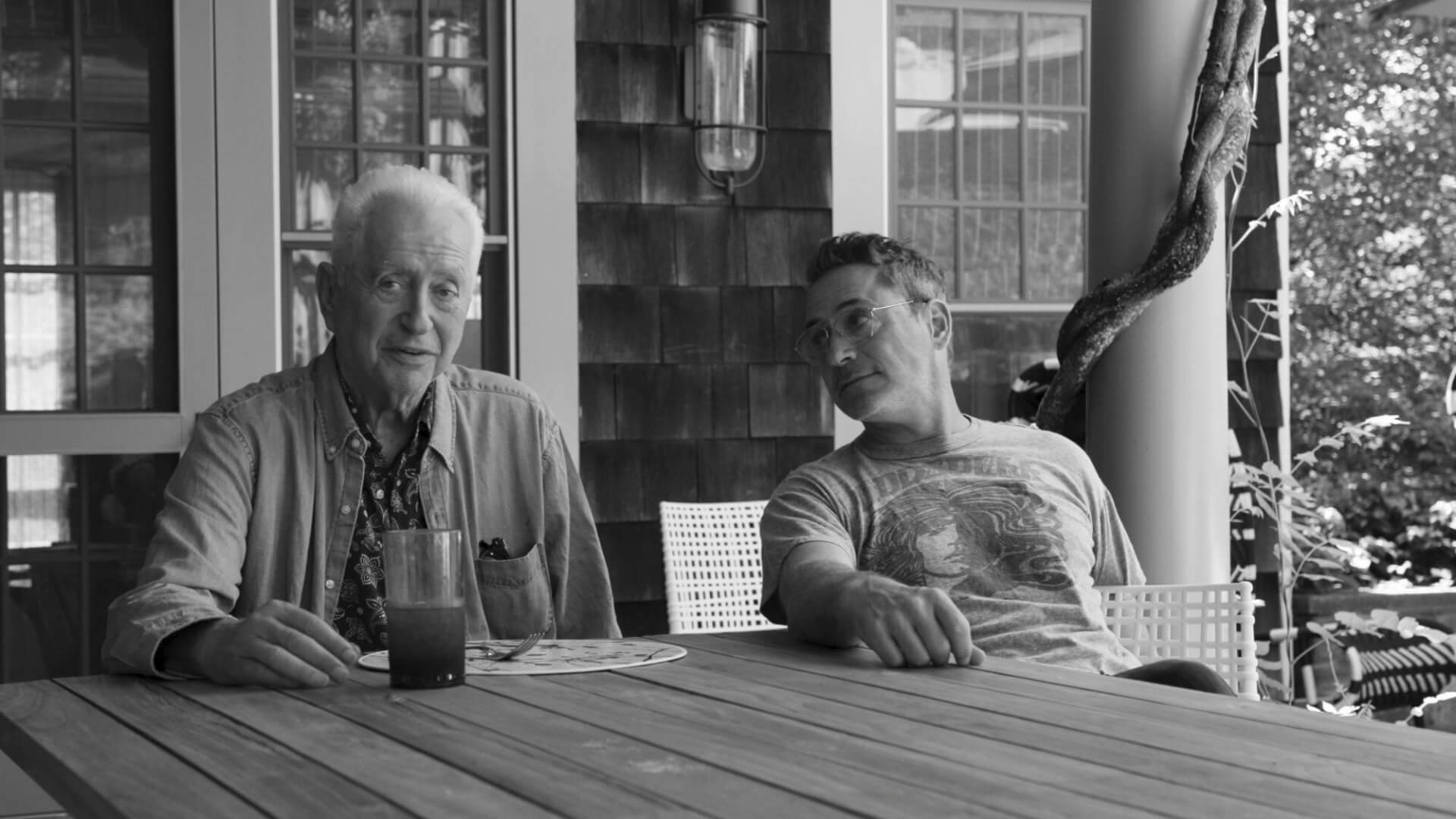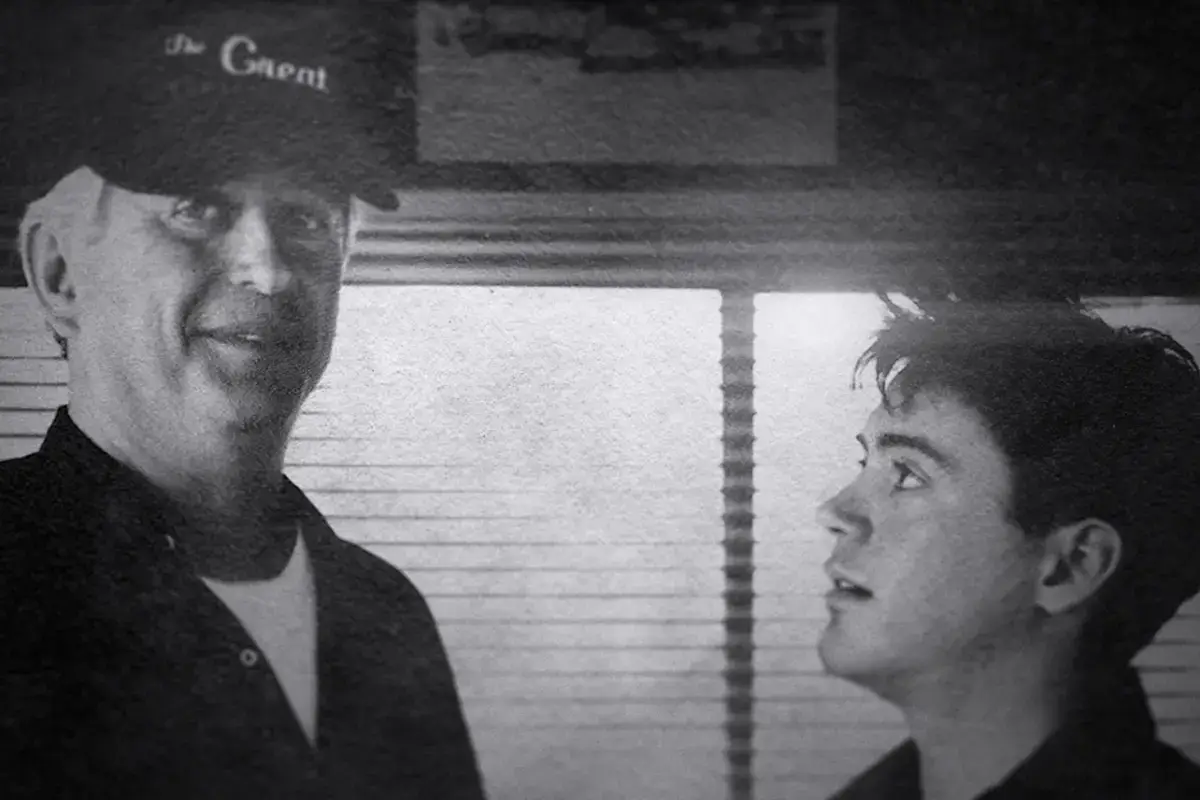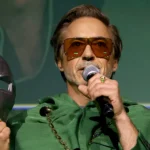SR. Robert Downey Jr.’s Letter to His Father

While watching Chris Smith’s documentary, my attention was constantly drawn to the walls of the main characters’ houses. I know that sounds a bit weird, so let me explain. I am a devoted fan of movie posters and I believe that interior design, including the presence of posters, can say a lot about a person, or at least about their taste. In Downey Sr.’s apartment French classic reigns supreme. Renoir’s comrades in arms hang opposite Marius Marcel Pagnol. In Downey Jr.’s mansion the walls are decorated with likenesses of the greatest American stars – Humphrey Bogart stares blankly at the space occupied by Cary Grant. Thus, various registers of cinema meet here (including the poster of Iron Man 3 located in several shots above Senior’s head), and the documentary itself turns out to be a story not only about a father and son, but also about two filmmakers whose positions in the industry are so different that as possible: the creator of American independent cinema and the highest-paid actor in Hollywood.
At the most basic level, Sr. is a popularization document. A film whose primary goal is to bring back the memory of the work of Robert Downey Sr.: an avant-garde director who today functions in the public space primarily as the “father of a famous actor”. As Downey Sr.’s wife Rosemary states at the beginning of the documentary: “Robert wanted to make a documentary about his father. About their history and relationship. Many people know Robert Downey Jr. but don’t know Senior. He wanted to change that.” I myself knew about Robert Downey Sr. before watching Smith’s documentary. as much as nothing. I’m ashamed to admit it, but I didn’t know the title of any of his films. I couldn’t place the work of the author of the Up the Academy on the map of American cinema, sensing only – and rightly so – that it was in his projects that one of the most popular actors in the world began his career. That’s right, Downey Sr. was for me, as well as for a large part of society, simply “the father of a famous actor”.

In this regard, Sr. really opens your eyes. It allows you to immerse yourself in the unique atmosphere of crazy, largely independent (the director’s short flirt with the studio system ended, as in many cases, with fiasco), productions of Downey Jr.’s father. Appreciate the social subversiveness of Putney Swope – a comedy made in 1969, in which, after the grotesque death of a white president, power in an advertising agency is taken over by the only black board member. Marvel at the unrestrained creativity of the Greaser’s Palace – a western reminiscent of the cult Mole, in which the main character, following the example of a certain Israelite, resurrects the dead and walks on the surface of the lake. After seeing Sr. you immediately feel like seeing one of Downey’s films – and this is by far the greatest, undisputed success of Smith’s documentary.
In this regard, Sr. really opens your eyes. It allows you to immerse yourself in the unique atmosphere of crazy, largely independent (the director’s short flirt with the studio system ended, as in many cases, fiasco), productions of Downey Jr.’s father. Appreciate the social subversiveness of Putney Swope – a comedy made in 1969, in which, after the grotesque death of a white president, power in an advertising agency is taken over by the only black board member. Marvel at the unrestrained creativity of the Greaser’s Palace – a western reminiscent of the cult Mole, in which the main character, following the example of a certain Israelite, resurrects the dead and walks on the surface of the lake. After seeing Sr. you immediately feel like seeing one of Downey’s films – and this is by far the greatest, undisputed success of Smith’s documentary.
Chronicle of leaving
Of course, the personal aspect of the film may seem more important during the screening. Centered around the relationship of Downey Sr. with son. The relationship, which should be emphasized at the outset, is not at all easy. Downey Jr. he does not escape, and praise him for that, from the less pleasant aspects of his childhood. Ubiquitous drugs and alcohol pouring liters over his cradle. The first Downey Jr. joint burned with his father before he was ten years old. The later psychophysical problems of the actor were, at least to some extent, the aftermath of the free parenting approach of his parents. Drug addiction, notorious arrests, a year in a rehab center. The turn of the century was not gracious period for Downey Jr. . However, there was always a place for him in the films of his father, who in the meantime befriended Paul Thomas Anderson, making cameo appearances in Boogie Nights and Magnolia. As Junior states at one point, most likely half jokingly, half seriously: “There’s no secret that Paul Thomas Anderson is the son my father always dreamed of.”

Franz Kafka once wrote a wildly moving Letter to His Father. A text in which he settled accounts with his parent, his strict upbringing and constant, dry attitude towards his only son. I think Sr. can be considered in similar terms – as a film letter from the son, the originator of the project, to the father – although the tone in which Downey Jr. speaks is, of course, much calmer and more tender than the one imposed by Kafka. In both cases, however, the letter remained undelivered: the Praga writer was stopped by his mother, who hid the text from her husband, probably sensing what his reaction would be. Downey Jr. – the death of a father, who died in June 2021, working almost to the end on his own editing version of the film.
Because the documentary by Chris Smith, who functions here as a kind of semi-transparent medium, is also a chronicle of departure. We quickly realize that we are watching the last years of Robert Downey Sr.’s life on the screen. The pond, adjacent to the flat of the director Putney Swope, has become a symbol of transience. First, full of tiny ducklings, visited by a hero who is in full strength. Later inhabited by adult ducks, with the protagonist walking around on wobbly legs, suffering a sudden attack of vertigo. Finally, empty – devoid of both animals and their human observer.


